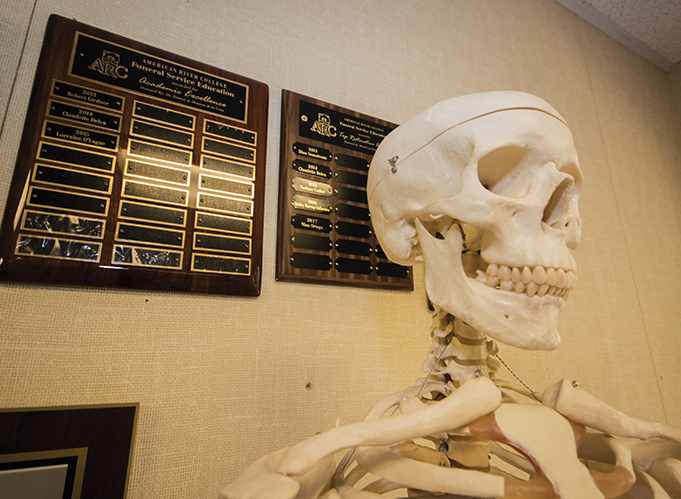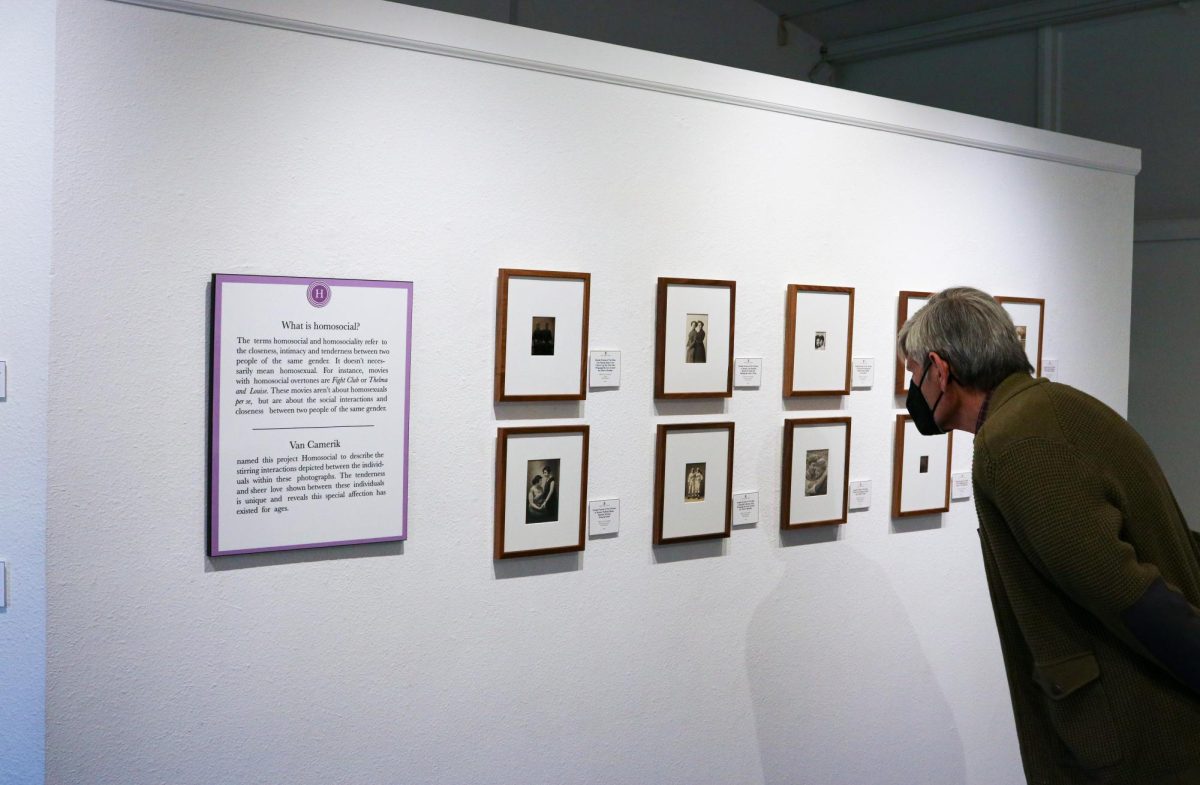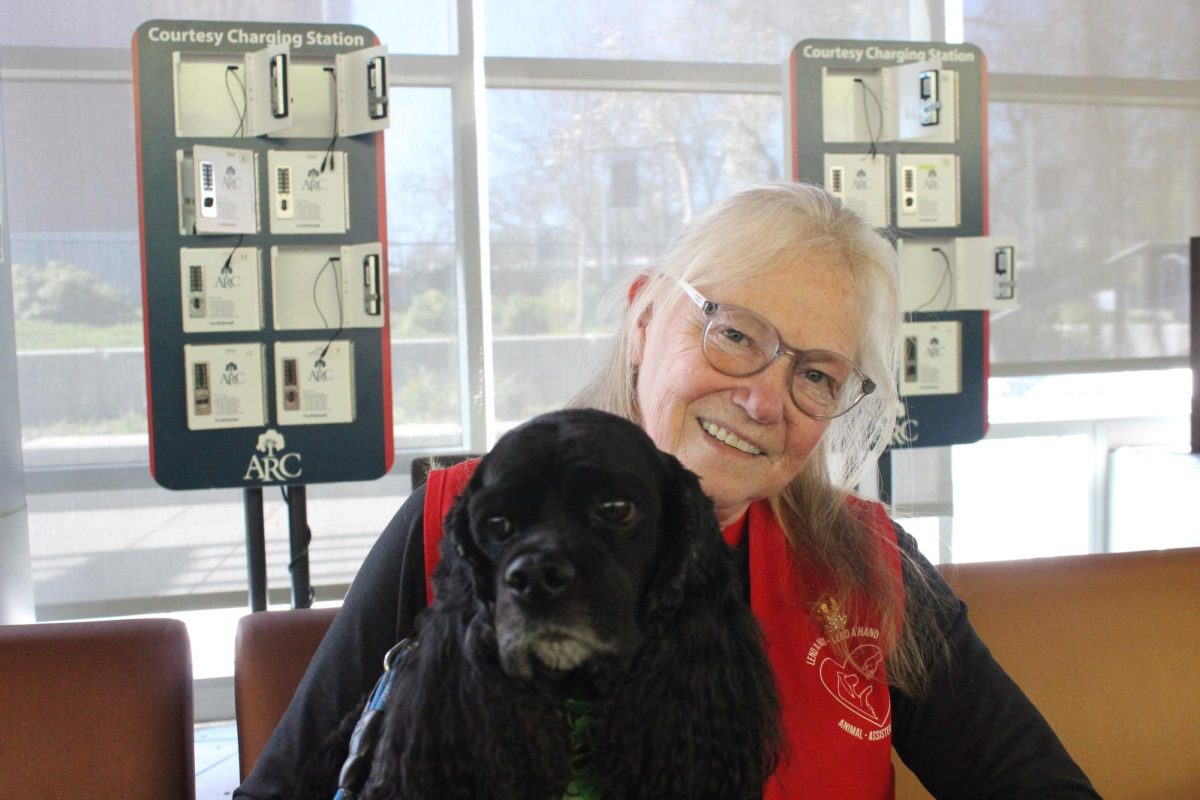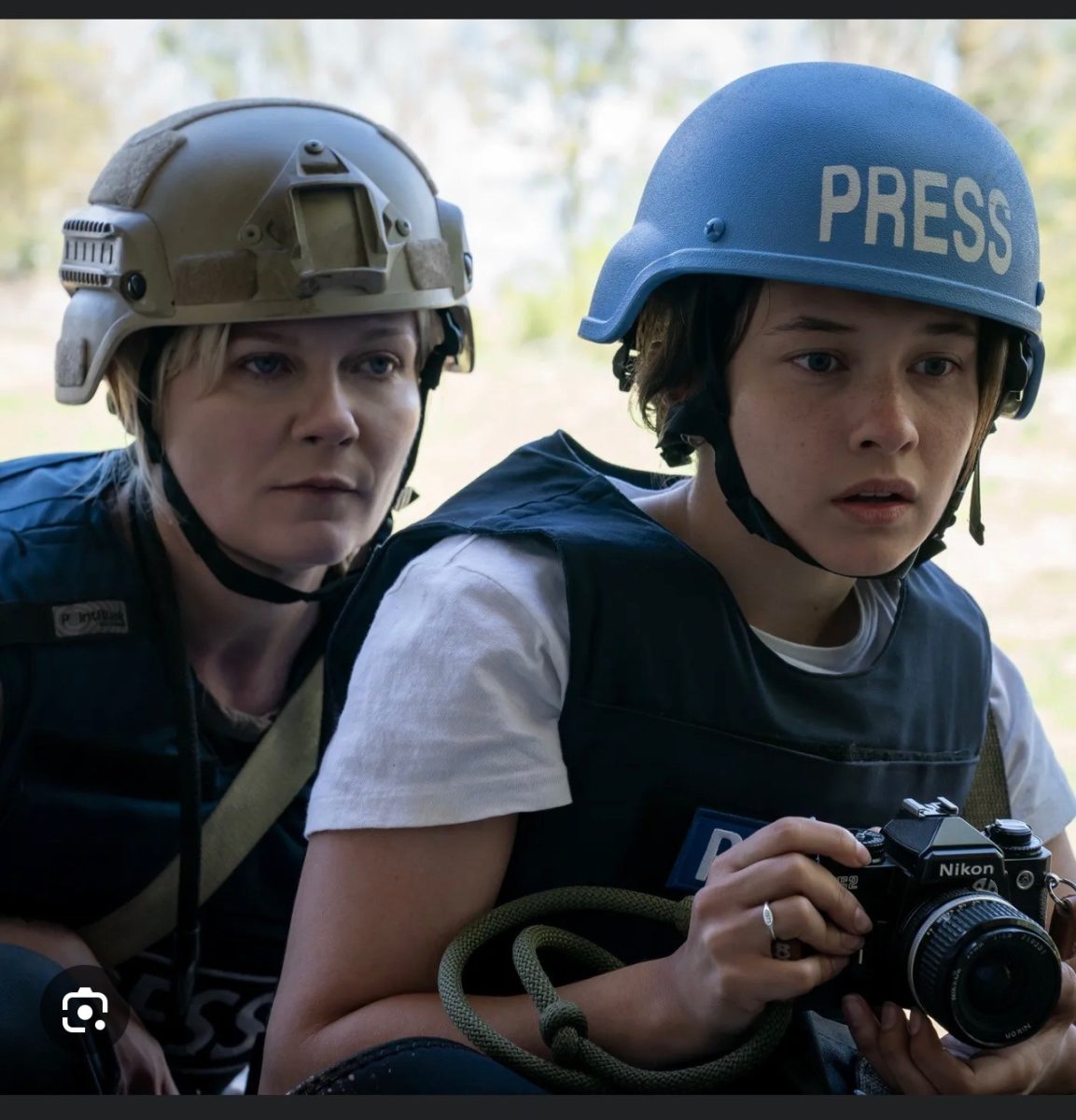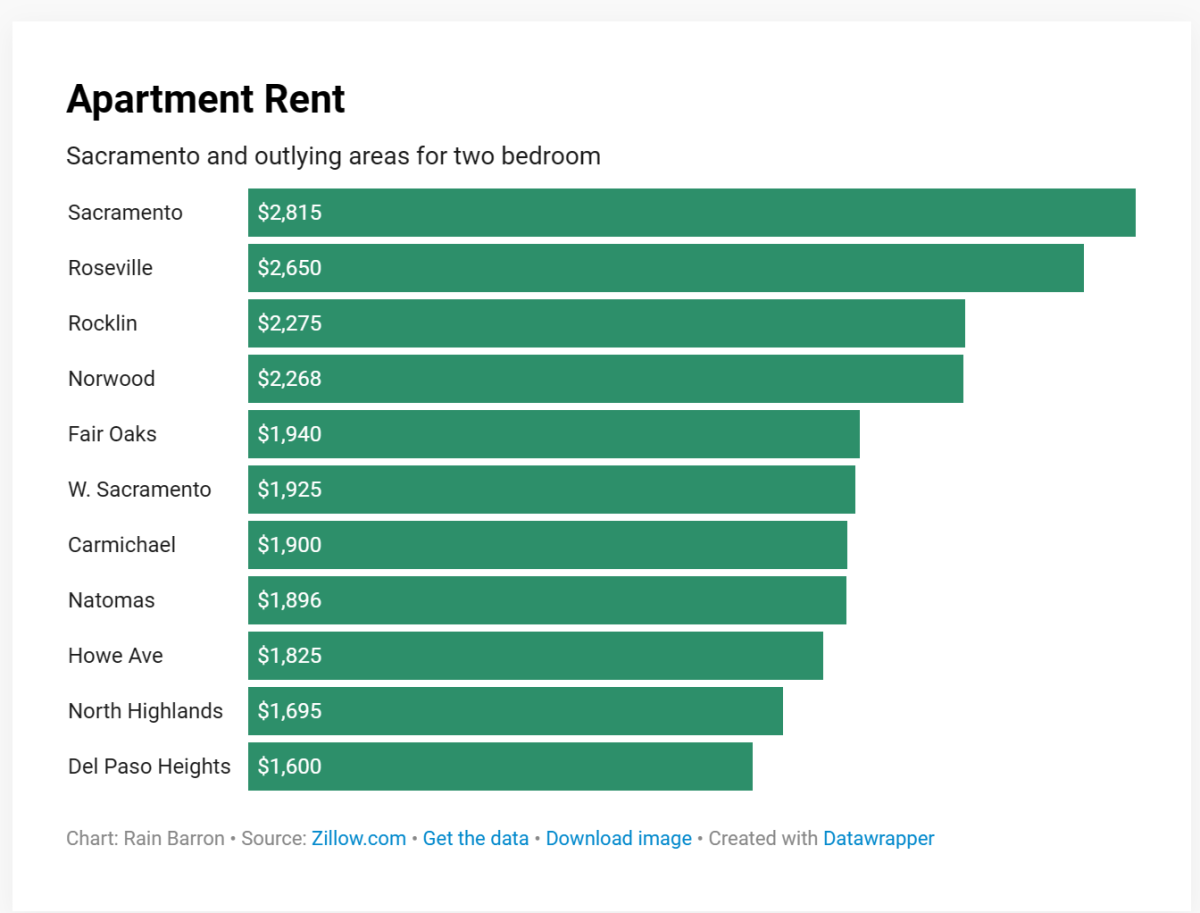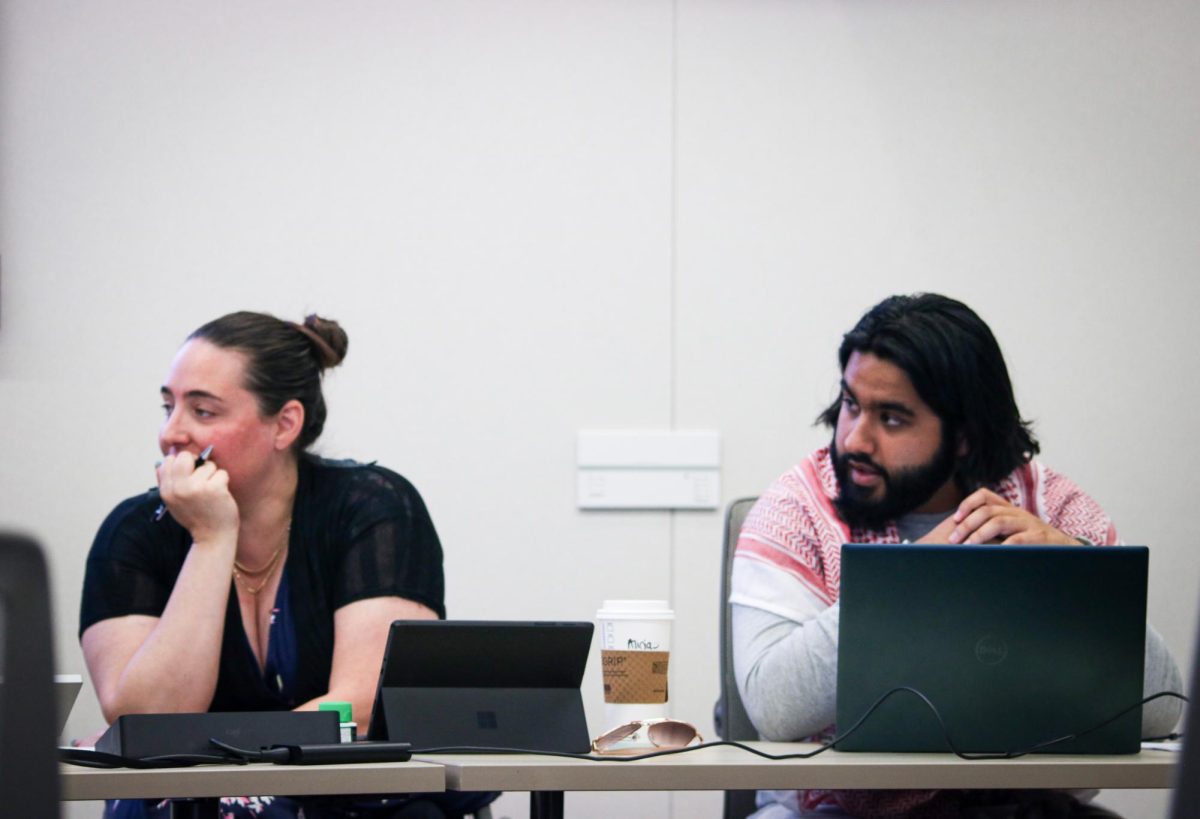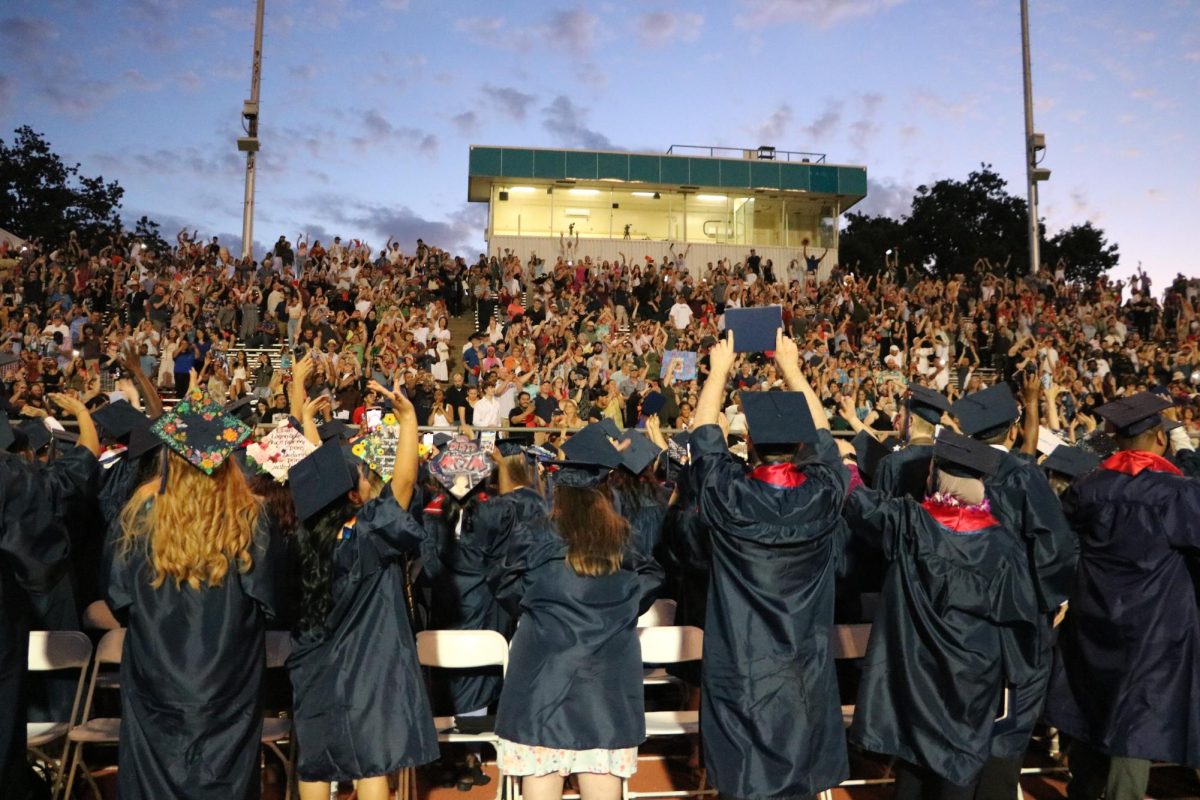American River College is home to a small and rare education program: it is one of only two colleges in California that offers funeral services education as a major. The department is accredited by the American Board of Funeral Service Education, and there are 59 total FSE degree programs accredited in the United States.
Currently, the department consists of 51 enrolled students, with a limit of 60, and only one faculty member.
The last college before ARC and Cypress, a school in southern California, to offer the major was the San Francisco College of Mortuary Science, which exported the program to ARC 12 years ago.
The director of ARC’s program, Valarie Rose, attended the San Francisco College of Mortuary Science before it was shut down.
“I saw it, and I was just like: ‘This is it.’ The old school was pretty cool looking, it looked like a big medical school … it was built in the early 1900s,” Rose said. “I moved to San Francisco, I wound up going and just loved it ever since.”
The school opened in 1930, but struggled to keep up with the cost of keeping the program there, according to an article on SFWeekly’s site. Eventually, the school was forced to send the program somewhere else.
“As soon as [faculty] heard it was closing, they started working to bring everything to [ARC] and get it approved,” Rose said.
The program still has space to expand, and ARC President Thomas Greene confirmed that the school is hiring a Funeral Services Education Assistant Professor. With more faculty, the department may be able to plan to offer a Bachelor’s Degree, like Cypress recently began offering.
“We unfortunately don’t advertise it enough here at the college,” she said.
Rose is not only the program director, but the professor for many of the courses required. There are also adjunct professors, most of whom teach lab and online classes.
FSE prepares students for a career as a funeral director or an embalmer. Funeral directors conduct a funeral service, which includes tasks such as paperwork, arrangement of service preferences and communicating with the family of the deceased. Embalmers prepare the body, either for sanitation or for the service, which may include a viewing. They use many methods to make a body presentable, or treat a body out of need for sanitation.
The idea of handling dead bodies makes some uneasy, which is why Rose emphasizes the benefits of the field.
“It’s not [weird] … It’s just trying to make them look good — present a good picture for the families,” Rose said. “That’s how they’re going to get their closure, by seeing their loved one looking peaceful and not in pain anymore.”
The misconceptions about funerals and workers are not uncommon. Rose said that in her introductory course, she often comes across students who have a different perception of the field.
“When we teach that class, almost everybody walks in there in black clothing, eyeliner on, black nail polish, the whole nine yards — it’s completely goth. And they’re like: ‘I love dead bodies,’” she said. “After they go through the course, by the end of it usually they’re going, ‘Wow this isn’t about the bodies even hardly at all.’ It’s about what families need and rituals for people to help them get through a death.”
Students don’t always come to the same conclusion, according to Leticia Alvarado, who graduated from the program at ARC in 2016, and speaks at orientations for the students.
“A lot of my classmates didn’t know what they were getting into, until the last semester,” she said. “I go in there and tell them: ‘make sure you know what you’re getting yourself into.’”
She also said that some students are drawn to the major through misinterpretation.
“What draws a lot [of students] is: ‘I see dead people,’” Alvarado said.
Alvarado has worked in funeral services for over 15 years, and currently works as a licensed embalmer. Stress and odd hours are common in the field, she says.
“Out of my class, maybe seven out of 15 [classmates] are still in the industry,” she said. “[I was] always sure of it … since I was six or seven I knew what I wanted to do.”
Despite the stress, Alvarado says the work is rewarding.
“I know that somehow I’ve helped a family with closure; with healing,” she said. “It’s good to know I helped.”
Though challenging, the program helps prepare students for their future career.
“The program is very rewarding if the student makes the best of it. It’s a tough program and the student will need to prepare for some serious sacrifices, but [it’s] all worth it at the end,” she added.
Dean Won, a biology professor at ARC, teaches Biology 103: Human Anatomy for Funeral Services, a prerequisite for the program. The purpose of the class is to give potential FSE majors a chance to gain first-hand experience with a cadaver as they study tissues and organ systems in the human body.
Won was asked by the Funeral Service department to make the class in 2010, a few years after the program moved to ARC. Enrollment for the class has always been small, according to Won, with around 15 students in each class.
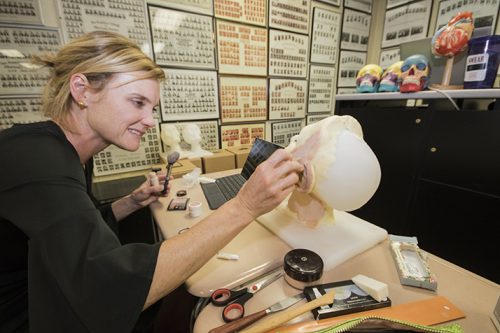
This semester only eight students enrolled in the course, making it the first semester he has ever had to cancel the course.
“[It] was back in 2011, when we offered [the course] for the first time,” Won said. “And this year was the first time it didn’t fill.”
Though Won also teaches a general education anatomy class, the aforementioned class was specifically requested by the Funeral Service Department to prepare students to handle cadavers for the purpose of embalming or dissection.
“For [students] to have the opportunity to dissect a cadaver is big. For many of them, it’s the first time they’re exposed to a dead body, basically,” Won said.
Rose is involved in the class too, helping instruct proper techniques.
“We usually go in, I have an adjunct instructor who helps me, we go over to it and do dissection with them and everything, like we would be doing if we were embalming,” she said.
Won said that some students have had different reactions to the cadaver.
“I had one student — I remember him — it was towards the end of the class. He was just kinda like, right in front of me, kind of tearing up. [He said:] ‘Cutting this guy, I feel so bad,’” Won described. “That’s more atypical — a student crying — but those kinds of emotions really come out. Most students are just really appreciative.”
Some students in the program have prior experience in the field, so the concept may be familiar to them. However, Won says he teaches his students to have an appreciation for the opportunity to work with a human body, and requires them to write an essay at the end of the course.
“That’s what I try to teach the students: that the opportunity that they have to dissect a human — this is not an animal, this is not an organ, it’s a human — is rare and precious, and by the end of the course when they write this appreciation essay, that really comes across,” Won said. “It’s like, one of the best things they’ve ever experienced.”
There is a cadaver lab on campus with a few bodies stored. Won says the body that would have been observed this semester will be saved there until the next semester he teaches the class.
If students don’t get to observe the cadaver in that class, they will have to wait until their fourth semester, during which they must take up an internship at a mortuary. In the semesters leading up to that, they learn about the embalming process.
In a far corner of ARC, FSE students study chemicals, decay, and human tissues. It is an art class, though not the most traditional. In Restorative Art, students learn how to reconstruct faces; both techniques for embalming and anatomy.
After a PowerPoint lecture, Rose leads the class into the lab portion; “Go ahead and get your heads out.”
They roll wax between their fingers before adding to a model — their own recreation of the human face — on the desk in front of them. They smooth the wax on to the sculpture to create facial features, and look at photographs and textbooks splayed across their desks for reference.
Erin Secrest, a third semester student, said that the modeling exercise has been her favorite in the class so far.
“It’s a break. I mean there’s lectures, but here’s a break from that, and it’s a lot more hands on,” Secrest said.
Outside the classroom, she has been the subject of questioning from other students for the unique job path she’s chosen — one she’s wanted to pursue since she graduated high school.
“I get a lot of funny looks and like: ‘Are you sure? Why are you doing that? That’s weird,’” she said. “But everybody is kind of like: ‘Wow, somebody has to do it. Good for you for knowing what you want to do.’”
Despite the perceived eccentricity of the students, it is not uncommon for them to know that funeral services is the right path for them before they even join the major.
Some students, like Shakinah Simmons, came to the program after initially pursuing a different degree.
“I first thought about [funeral service] in high school … but I didn’t go that route,” Simmons said. “Instead [I] did criminal justice at Sac State, wasted two years, and decided to change my mind.”
Now that she’s in her third semester of the program, Simmons said she is confident that the major is right for her.
“This is for sure what I wanna do. I don’t plan on working for nobody. I’m going to have my own funeral home; that’s the goal,” Simmons said.
Rose recommends that students find an opportunity to work during their earlier semesters, so they are able to gain experience while learning. She says it is essential that students are able to put their knowledge into practice.
“Their whole fourth semester they spend working in a funeral home. They do an internship currently,” Rose said. “But they’re kind of at the mercy of the funeral home at to what they’re doing, unfortunately.”
The students are not always able to get the right amount of hands-on experience as the program stands. They are required to complete a certain amount of embalmings, services and arrangements before they can graduate, according to Rose.
“We need them to get more experience, and [California] just changed this requirement because they found that students coming out of these mortuary colleges — the community colleges — aren’t getting enough experience when they come out,” Rose said.
The department has found a way for students to get hands-on experience even sooner — incorporating it’s own funeral service facility into the major, and our campus.
“[San Francisco] was a working mortuary, and that’s what we’re trying to duplicate,” Rose said.
The proposed non-denominational chapel would serve as a multipurpose educational facility, and would house all of the department’s classes.
Greene compared the idea to the Oak Cafe, regarding the experience gained by students when interacting with others.
“It’s really powerful, it’s an experiential model. Students not only learn the theory — they put it into practice, right? So they’re learning with all of their senses,” ARC’s President said.
Rose believes that developing this onsite will help students prosper.
“If they start doing this from day one, when they’re sitting there listening to a lecture on something, they’re gonna be able to put it all together, and go: ‘Oh, I get it now!” she said.
As of now, the department’s classrooms are often shared, such as the Restorative Art class that doubles as a nursing classroom. It would also offer students the chance to collaborate and even work for their community, according to Greene.
“There’s a lot of opportunity there. I think the other thing that is really powerful for us is that: we’re supported by our community, and if we can provide a direct service back to our community, in a way that really also facilitates high quality learning, a great learning experience for our students — that to me — what a wonderful model, right? And I wish we could do that,” Greene said.
Both Rose and Greene emphasized that it is in the planning stages, and can’t confirm where or when the chapel will be completed. Valarie is interested in collaborating with interior design students to plan and decorate the room for services.
There are other collaboration efforts on campus, between departments. Theater students have attended classes of funeral services students to set the scene, according to Rose. The students are told to act emotional and volatile, in a way that challenges students to communicate and plan under pressure and chaos — much like they may face in the career.
“I mean they cry, they stomp, they do everything a real family would do. Because they have no background in this … It’s realistic for them,” Rose said about the fourth semester counseling class.
A facility for the department would make other collaborations possible. If the department is able to integrate its services into the campus, even more students will have have the opportunity to be involved.
Correction: A previous version of this article incorrectly referred to the San Francisco College of Mortuary Science as “San Francisco School of Mortuary.”


